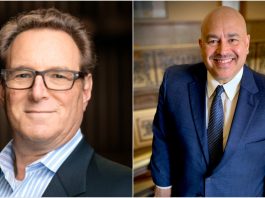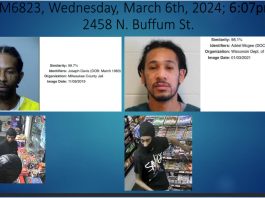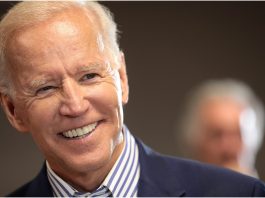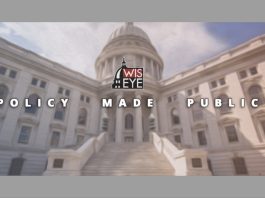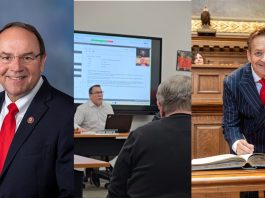Here are 14 important facts to remember when assessing the Donald Trump indictment by the Manhattan district attorney.
The Democratic Manhattan district attorney has indicted former President Donald Trump on a slew of felony charges in the middle of a presidential election. However, don’t believe everything you read in the liberal media and, certainly, don’t judge the historic indictment without having all of the facts.
The 14 facts you need to know:
1. The statute of limitations has likely expired unless it can be shown Trump was ‘continuously’ out of the state
The statute of limitations in New York for felonies is five years, and it’s two years for misdemeanors, except for the most serious crimes like rape and murder, according to Newsweek. The Stormy Daniels allegations date to 2016. Do the math.
According to the left-wing Nation, “the statute of limitations on bookkeeping fraud and campaign finance violations is five years. That brings you to 2021. The statute of limitations for tax evasion is three years.” That brings you to 2019.
The only way to get around this, in a felony case, is if the accused was “continuously” out of the state during the time frame, tolling the statute of limitations. But was Trump? He maintained New York as his residency for years, and he was out of the state… because he was president. Normally tolling is applied to people who are fleeing prosecution/fugitives from justice.
Does it even apply here? How fair is that? The specific wording for tolling the statute of limitations is, according to Newsweek, if the accused was “continuously unknown and continuously unascertainable by the exercise of reasonable diligence.”
According to Newsweek, Trump “spent time at his New York home and until autumn of 2019 maintained his residence as New York.” Newsweek reported that an appeals court in New York previously clarified that the exception to the statute of limitations was meant to apply to someone who was difficult “to apprehend.”
The caveat would be if there are charges for something more recent, but that would be a surprise as everything known thus far has focused on the Daniels’ payment.
2. The Manhattan DA is a Democrat whose campaign received money from a group funded by George Soros
This is not a normal case. It’s a criminal charge being filed against a former president who is a current Republican presidential candidate.
Thus, it’s worth noting that the Manhattan district attorney comes from the opposite political party. He is a Democrat.
Furthermore, his campaign received at least $500,000 from a group funded, in part, by liberal George Soros, who has purposely been electing anti-incarceration district attorneys all over the country.
Florida Gov. Ron DeSantis has called Bragg “Soros-backed.” Soros says he didn’t donate to Bragg’s campaign and doesn’t know him, according to Fox News.
According to Fox, in May 2021, Soros “gave $1 million to the Color of Change PAC, which, shortly after receiving the donation, spent hundreds of thousands of dollars backing Bragg’s candidacy.” Soros’s son and daughter-in-law directly donated to Bragg’s campaign, Fox News reported.
3. This is the first time in U.S. history that a former president has been criminally charged
They didn’t even do it to Nixon. Point made.
4. Liberal newspapers and news sites are concerned by the weakness of this charge
Even liberal newspapers and news sites like the Washington Post and the Nation are concerned this charge won’t stand up. Of course, they are couching their concern in concern that this weaker charge will make it harder to charge Trump with other things.
But they’re still expressing concern that it’s weak.
The Washington Post editorial board wrote, “The Trump indictment is a poor test case for prosecuting a former president.”
Listen to how the extremely left-wing Nation described it: “It’s not a clean shot: Bragg is trying to bank in a half-court heave off the backboard after the shot clock buzzer has already sounded.”
5. Grand juries could indict a ham sandwich if that’s what the prosecutor wanted
That’s a famous line and with good reason. Grand juries in New York are the prosecutor’s show; the defense doesn’t get to call witnesses or present evidence or cross-examine. In addition, they don’t need to come to a unanimous conclusion and the standard is a lower hurdle than beyond a reasonable doubt.
6. The case is based on an untested legal theory with jurisdictional questions
Mark Pomerantz, a former prosecutor in the Manhattan DA’s office, said in a book that the former DA, Cyrus Vance, refused twice to charge Trump in the matter because it would “rely on untested legal strategies,” according to Reuters, adding that it was called the “zombie case” as a result.
The untested legal strategies revolve around whether a state charge can be issued for an alleged federal campaign finance violation, Reuters reported. Even other prosecutors in the office were “skeptical” that charges could be fairly brought, Reuters reported.
According to the Washington Post, it’s believed that Bragg is trying to get around the misdemeanor statute of limitations hurdle by turning the case into a felony by arguing that Trump falsified his business records (state crime) to prevent voters from learning about the Daniels allegations and then didn’t report it as a campaign finance violation (federal campaign finance violation).
But, notes The Post, “Pyramiding two transgressions of state rules to go after a federal candidate is legally plausible. But the strategy is also novel, and courts may regard it with skepticism. What’s more, the potential campaign finance charge itself is shaky.”
The Nation notes, “The hush-money payment was not, in itself, illegal.”
7. The U.S. Department of Justice passed on the same case under bipartisan Attorneys General
According to the Nation, the Justice Department refused to prosecute Trump federally on the same matter both Attorneys General Bill Barr and Merrick Garland, a Republican, and a Democrat.
8. The previous Manhattan DA passed on the case
As noted, Cyrus Vance, the Manhattan district attorney before Bragg, passed TWICE on charging the case.
9. The current Manhattan DA previously passed on the case
Alvin Bragg himself previously passed on charging the case, according to The Washington Post. The indictment comes at the same time Bragg has been refusing to charge violent criminals.
10. The case was so aggressive that the government went after Trump’s ATTORNEY
Everyone’s heard of the core legal concept called attorney-client privilege. In this case, the government went after Trump’s attorney, pressuring him to flip and reveal privileged conversations by filing criminal charges against him.
11. That attorney has credibility problems and previously said Trump didn’t know about the payment
According to NPR: “Cohen has asserted that Trump had no knowledge of the payment, which was made through a shell corporation…Cohen said he used a home equity loan in order to pay off Daniels. Cohen has said neither Trump’s business nor the Trump campaign reimbursed after paying her.”
According to Politico, Cohen’s credibility “is open to challenge.”
For one, Politico notes, he pleaded guilty to 9 felonies and spent 3 years in federal prison. He’s also “repeatedly expressed extreme bitterness towards Trump,” Politico reported.
According to the Nation, Cohen “initially lied to federal investigators, and Congress, about his participation in the scheme.” If you lied about one thing, a jury may believe you lied about another or that there is reasonable doubt that you did.
A man named Robert Costello, a former Trump adviser, told the Grand Jury Cohen wanted revenge and that Trump did not know about the payment.
12. Stormy Daniels admits she previously lied about the case
Stormy Daniels previously said she did not have sex with Trump in a letter. She now says that was a lie.
13. Prosecutors would likely have to prove that Trump knew the payment was illegal
Proving knowledge can be a difficult hurdle for prosecutors to meet. According to Politico, prosecutors “may have to prove that Trump knew the arrangement was illegal” and Trump could argue that he assumed Cohen was handling his affairs lawfully.
According to CNN, “prosecutors would need to show Trump intended to commit a crime.”
14. Trump just has to show the payment was for a non-campaign reason
There’s an obvious alternative theory: He was covering it up from Melania, not voters. While that’s not commendable behavior, it also could nuke the state’s argument.
The Washington Post noted that this was the defense former Sen. John Edwards used when he was charged with a similar (but federal) crime. He was acquitted on one count, and the case resulted in a hung jury on the rest. He was not retried.


